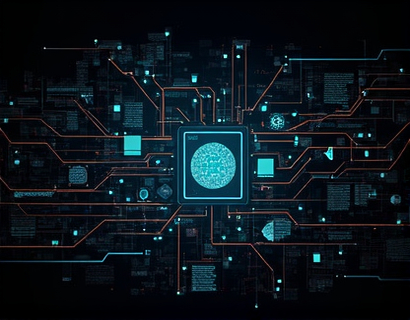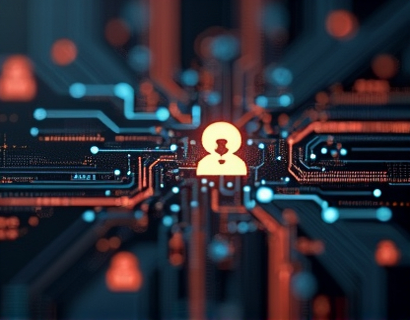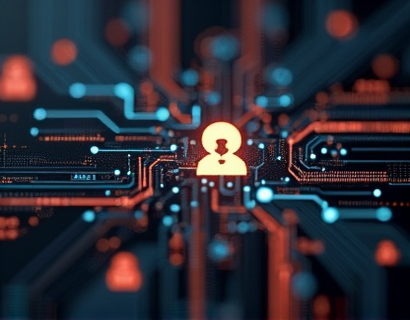Revolutionizing Digital Engagement: The Synergy of Crypto and AI in Intelligent App Ecosystems
The intersection of cryptocurrency and artificial intelligence (AI) is giving rise to a new era of digital engagement, where app ecosystems are being transformed to offer enhanced user experiences. This fusion is not just a technological advancement but a paradigm shift in how we interact with digital platforms. By leveraging the decentralized and secure nature of crypto with the intelligent and adaptive capabilities of AI, developers are creating intelligent app ecosystems that are more responsive, secure, and user-centric. This article explores the profound impact of this synergy on digital experiences and the future of tech innovation.
Understanding the Basics: Crypto and AI
To fully appreciate the revolution underway, it's essential to understand the fundamental concepts of cryptocurrency and artificial intelligence. Cryptocurrency, such as Bitcoin and Ethereum, operates on blockchain technology, a decentralized ledger that ensures transparency, security, and immutability. This technology enables peer-to-peer transactions without the need for intermediaries, reducing costs and increasing efficiency.
Artificial intelligence, on the other hand, involves the simulation of human intelligence processes by machines, particularly computer systems. These processes include learning (the acquisition of information and rules for using it), reasoning (using rules to reach approximate or definite conclusions), and self-correction. AI can be further categorized into subsets like machine learning, natural language processing, and computer vision, each contributing uniquely to the tech landscape.
The Intersection: Crypto-Powered AI Applications
The combination of crypto and AI is leading to the development of applications that are not only innovative but also highly secure and efficient. One of the most significant areas of convergence is in the creation of decentralized applications (dApps). These applications run on blockchain networks and utilize smart contracts, which are self-executing contracts with the terms directly written into code. AI enhances these dApps by providing intelligent automation, predictive analytics, and personalized user experiences.
For instance, in the realm of finance, decentralized finance (DeFi) platforms are leveraging AI to offer sophisticated trading algorithms, risk management tools, and automated investment strategies. These platforms benefit from the transparency and security of blockchain, while AI algorithms optimize performance and reduce human error.
Enhancing User Interactions through AI
AI is revolutionizing user interactions within app ecosystems by making them more intuitive and personalized. Machine learning algorithms analyze user behavior and preferences to deliver tailored content and recommendations. This level of personalization enhances user engagement and satisfaction, leading to higher retention rates and increased usage.
Natural language processing (NLP) is another AI subset that is transforming how users interact with apps. Chatbots and virtual assistants powered by NLP can understand and respond to user queries in a natural, conversational manner. This not only improves user experience but also provides 24/7 support, reducing the burden on human customer service teams.
Security and Trust: A Crypto-AI Synergy
Security is a paramount concern in the digital world, and the combination of crypto and AI addresses this issue effectively. Blockchain's inherent security features, such as cryptographic hashing and consensus mechanisms, ensure that data is tamper-proof and transactions are verifiable. AI enhances this security by detecting and mitigating potential threats in real-time.
For example, AI-driven security systems can monitor network activity for unusual patterns that may indicate a cyberattack. These systems can automatically trigger defensive measures, such as isolating affected parts of the network or alerting administrators. This proactive approach to security builds trust among users, who are increasingly concerned about data privacy and protection.
Decentralized Identity Management
Another area where crypto and AI are making significant strides is in decentralized identity management. Traditional identity verification processes are often centralized, vulnerable to breaches, and prone to misuse. By using blockchain and AI, users can have control over their digital identities, storing and managing their personal data securely and privately.
AI algorithms can verify the authenticity of identity documents and ensure compliance with regulatory standards. This not only enhances security but also simplifies the identity verification process for users, reducing friction and improving the overall user experience.
Optimizing App Performance with AI
AI is also playing a crucial role in optimizing the performance of apps within these intelligent ecosystems. Machine learning models can analyze vast amounts of data to identify bottlenecks and inefficiencies, allowing developers to make data-driven decisions to improve app performance. This includes optimizing resource usage, reducing latency, and enhancing scalability.
Furthermore, AI can predict user demand and adjust resources accordingly, ensuring that apps remain responsive and efficient under varying loads. This level of optimization is particularly beneficial for dApps, which often operate on decentralized networks with dynamic resource allocation.
Fostering Innovation through Crypto-AI Ecosystems
The synergy between crypto and AI is not only enhancing existing applications but also fostering a culture of innovation. Developers are encouraged to experiment with new ideas, knowing that blockchain provides a secure and transparent platform for testing and deployment. AI tools and frameworks are making it easier to develop and integrate intelligent features into apps, lowering the barrier to entry for innovators.
This ecosystem supports a collaborative environment where developers, researchers, and users can contribute to the growth and improvement of apps. Open-source projects and community-driven initiatives are becoming more prevalent, leading to rapid advancements and a diverse range of solutions.
Challenges and Considerations
Despite the numerous benefits, the integration of crypto and AI in app ecosystems is not without challenges. Regulatory uncertainties, technical complexities, and the need for standardization are among the key issues that need to be addressed. Ensuring compliance with existing laws while innovating within this space requires a careful and strategic approach.
Additionally, the computational resources required for AI algorithms, especially those involving deep learning, can be substantial. Efficiently managing these resources on decentralized networks is an ongoing area of research and development.
The Future Landscape: Opportunities and Predictions
Looking ahead, the fusion of crypto and AI is poised to drive significant advancements in various sectors, from healthcare and finance to education and entertainment. The potential for creating seamless, secure, and personalized digital experiences is vast.
One promising area is the development of AI-powered predictive maintenance for IoT devices within decentralized networks. This could lead to more reliable and efficient smart city infrastructures. In healthcare, AI-driven analytics on blockchain-based patient records can enhance data security and enable more accurate and personalized medical treatments.
As technology continues to evolve, we can expect to see more sophisticated applications of crypto and AI, further transforming the digital landscape. The key will be to balance innovation with practicality, ensuring that these advancements genuinely enhance user experiences and drive meaningful growth.
In conclusion, the synergy between cryptocurrency and artificial intelligence is revolutionizing digital engagement by creating intelligent app ecosystems that are more secure, efficient, and user-centric. This fusion is not only reshaping current digital experiences but also paving the way for future innovations that will continue to push the boundaries of what is possible in the tech sector.










































